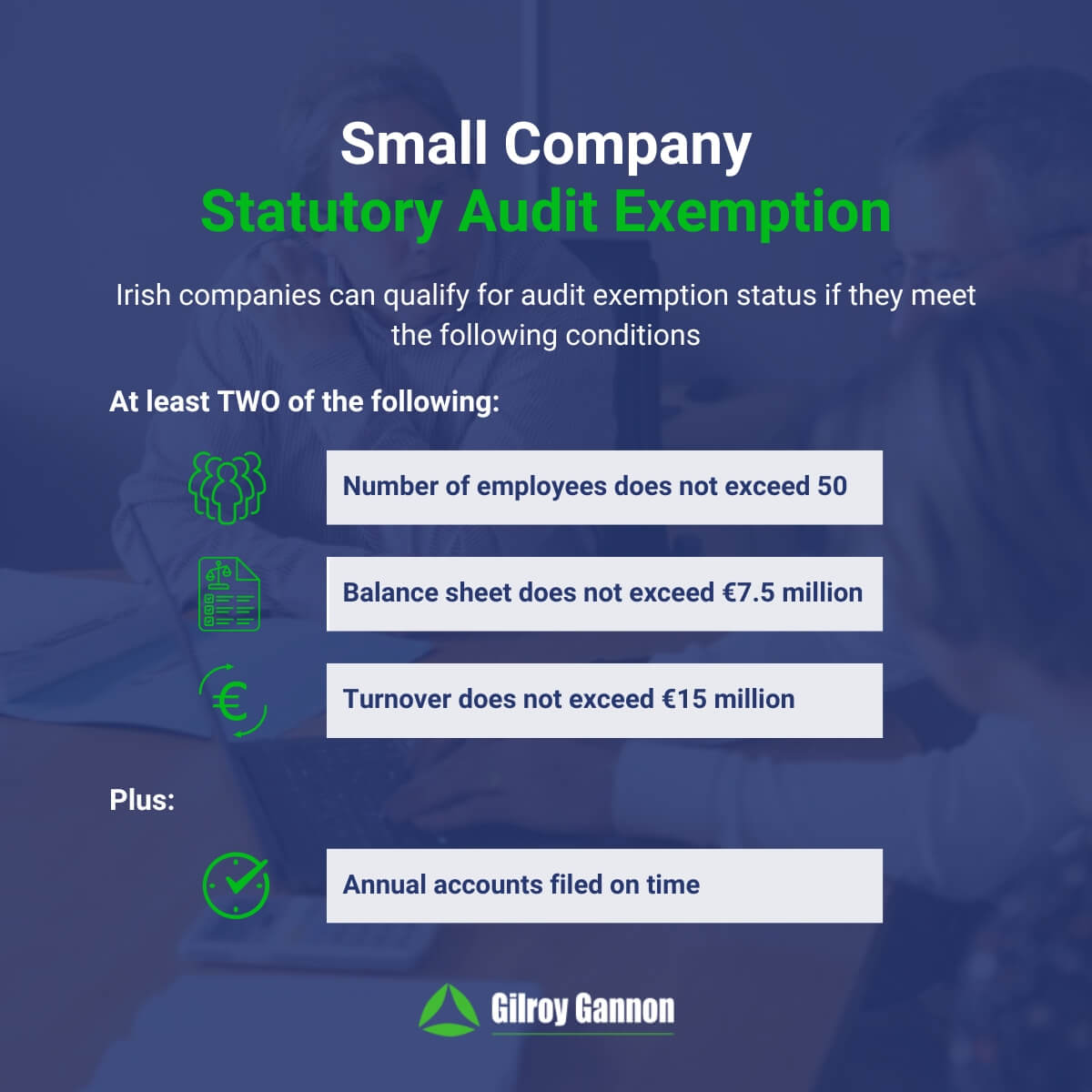What is a Statutory Audit?

Questions about statutory audits are among the most commonly asked by business owners and directors. This is understandable given the strict regulations that govern the statutory audit process. So, what is a statutory audit?
Let’s start with a brief summary. A statutory audit is a comprehensive review of your company’s accounts with the outcome detailed in a report. Audits are carried out by statutory auditors and all Irish companies must appoint a statutory auditor unless they are exempt.
The role of a statutory auditor is to independently verify the financial statements made by the company and determine if the accounts are a true reflection of the company’s financial position.
The process, therefore, is about good corporate governance and financial transparency.
Audit Exemptions
The summary above mentions that all Irish companies must go through the statutory audit process unless they are exempt. Is your company exempt?
Some companies in Ireland can qualify for an audit exemption under Small Company Audit Exemption rules. To qualify for an exemption, your company must meet at least two of the following conditions:
- Balance sheet of €7.5m or less
- Turnover of €15m or less
- 50 or fewer employees
The other main condition is that your company must file its annual return on time both for the current year and the previous year. If your return is late, you will lose the ability to qualify for an audit exemption for at least two years.

It is important to highlight that there are some companies that cannot qualify for an audit exemption regardless of whether or not they meet the above criteria. There are 18 classes of companies this applies to. Most of the classes apply to banks and companies that provide financial or insurance services.
It is also important to highlight the additional considerations that apply if your company is part of a group. In most cases, small group company audit exemption rules will apply. In this scenario, the individual company might meet the conditions highlighted above but could still need to be audited because of the financial position of the group.
The best approach whether you are a standalone company or part of a group is to seek advice from a professional accountancy firm that offers statutory audit services.
Who Carries Out Statutory Audits?
Statutory auditors must be qualified and registered through one of the professional accounting bodies officially recognised in Ireland. This includes Chartered Accountants Ireland and the Association of Chartered Certified Accountants.
Companies that provide statutory audit services must also be registered for inclusion on the Register of Auditors.
Auditors are not employees of the company they are auditing but, under Irish law, they are viewed as company officers in relation to liability, albeit independent company officers.
Auditors must declare themselves as being sufficiently independent of the company they have been appointed to audit. For example, an auditor can’t be a company officer in another capacity, nor can they be directly connected to a company officer (such as being a spouse of a company officer).
The Statutory Audit Process
Appointing an Auditor
The first step is for your company to appoint an auditor, usually through an accountancy firm on the official Register of Auditors, such as Gilroy Gannon.
Unless a company qualifies for an audit exemption, it cannot continue to trade if it doesn’t appoint an auditor or if the auditor doesn’t complete the required duties.
Auditing of the Company’s Accounts
The auditor will then audit your company’s accounts. This involves a complete review of all accounting records, including financial statements and other financial records and data.
There will be a specific focus on the financial statements that company directors are obligated to produce each year. Those financial statements include:
- Balance sheet
- Profit and loss account
- Director’s report on financial performance
The aim of the audit is to verify the accuracy and authenticity of the company’s accounts as they are being presented to shareholders.
Rights and Responsibilities
Auditors have certain rights in legislation that enable them to carry out their duties. This includes the right to access the company’s accounts and ask questions of relevant people. They can also attend Annual General Meetings.
Auditors must also carry out their duties according to specific standards. This includes acting with professional integrity as well as with reasonable care and skill.
Auditor’s Report
Once the audit is complete, the auditor will produce an Auditor’s Report. This report includes information such as whether the auditor believes they received all the required records and whether the company’s financial statements are a “true and fair” representation of the company’s financial position.
The Auditor’s Report is then presented to shareholders at a company general meeting. The report must also be filed with the CRO (Companies Registration Office) as part of the company’s Annual Return.
Statutory Audit Support
Whether you want to obtain audit exemption status, you need to appoint a statutory auditor, or you have any other requirements or questions about your obligations, the process, or anything else, we can help at Gilroy Gannon. Get in touch with us today to arrange a consultation.
Latest Blog
Check out our blog and you will get the latest news, events, and financial tips from Gilroy Gannon.








